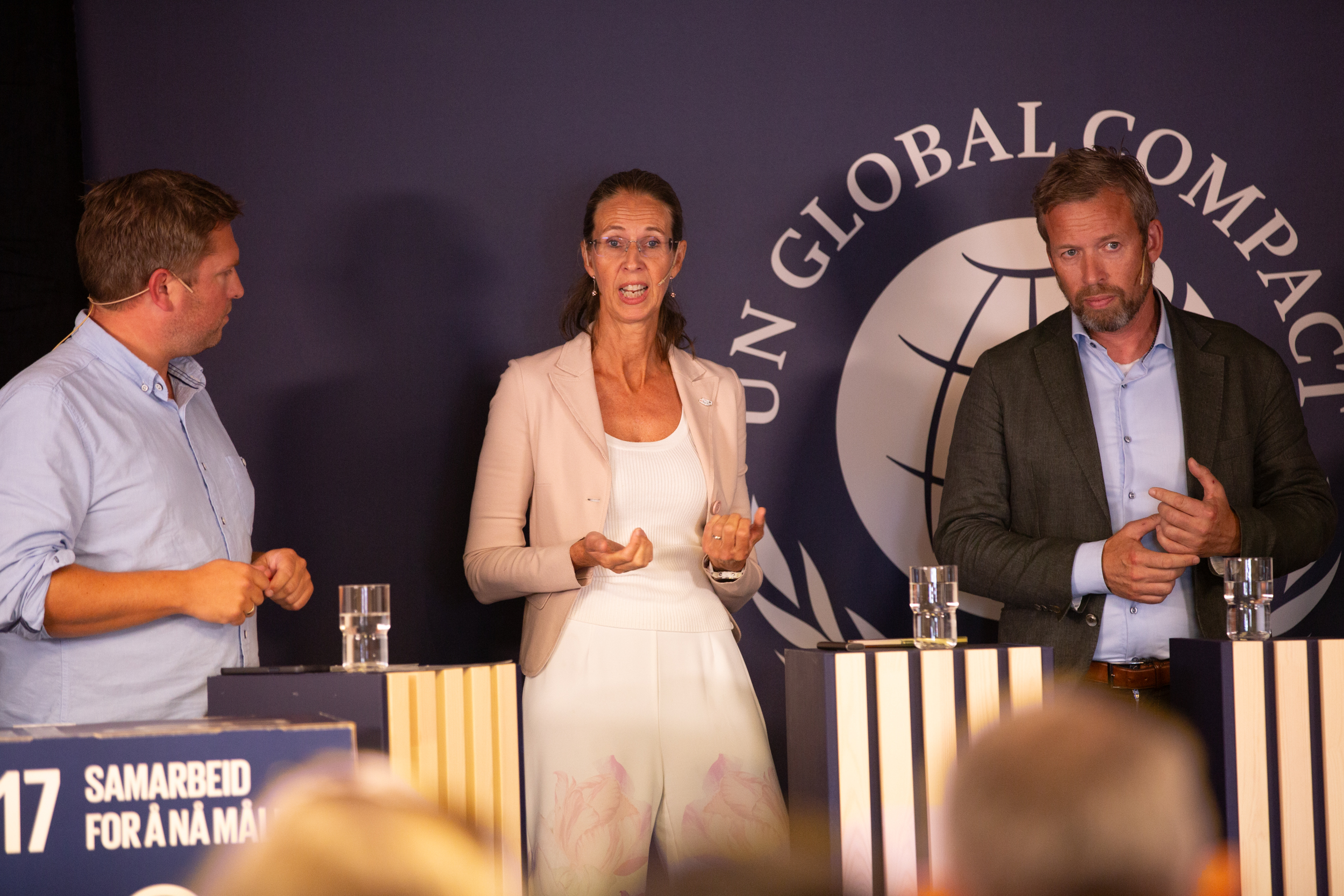

How will climate regulations, energy prices, and technological development affect shipping and investments in the industry? During Arendalsuka, the Grieg Group and the Norwegian Climate Foundation hosted a panel discussion about the uncertainties that continue to rise for shipping companies due to climate change and coming regulations.
This summer has been brutal in many ways; we have received grim reminders of climate change weekly through extreme weather here in Northern Europe and wildfires in the South. The world keeps setting new heat records.
“It won’t be long before we break records again. What responsibility do we have? And how will our businesses be affected by the transition from fossil fuels to a low-emission society? This is what climate risk is about. It’s not about what you believe. It’s about how this affects you, regardless, and you need to prepare for it,” said Lars-Henrik Paarup Mikkelsen, Managing Director of the Norwegian Climate Foundation.
The foundation is Norway’s green think tank, working for a society without human-induced climate changes. With Grieg, Michelsen invited participants to discuss the future, shipping, finance, and the transition to a zero-emission society.

Unified plan for transition
Annicken Kildahl, CFO of Grieg Maritime Group; Ernst A. Meyer, President & CEO of Torvald Klaveness Group; Ingrid Due-Gundersen, CEO of Havfram, Knut Ola Skotvedt, SVP Ocean Industries at DNB Bank ASA, all agreed on one thing: “We need secure framework conditions and a common cost plan.”
There is little doubt that achieving common, globally agreed-upon regulations for carbon emissions at sea is challenging. The panel participants were optimistic. Progress has been made with the EU’s sustainability directive, and there is hope that the International Maritime Organization (IMO) will be inspired and follow suit.
It’s no secret that many in the industry find progress slow and would prefer a unified plan for transition, but that’s the nature of a global context. It takes time. “With that said, several initiatives are underway. And that’s better than having none,” said CFO of Grieg, Annicken Kildahl, pointing to Japan, USA, and especially the EU’s new climate reporting and taxonomy requirements and EU Emission Trading Scheme.

She remained concerned that emitters should pay for increased carbon taxes, yet the end consumer should ultimately bear the cost. “The fuel price could increase fivefold. However, the cost to the end consumer would still be minimal,” said Ernst A. Meyer, President & CEO of Torvald Klaveness Group. “As little as 20 cents on a pair of sneakers,” said Kildahl, underscoring that the cost cannot rest with shipping companies but rather with those who ultimately purchase the goods.
Transitioning from fossil fuels to green fuels is key to a greener shipping industry. But this takes time and naturally affects investment costs when purchasing new ships. “We buy ships that are meant to last for 30 years. At the same time, we can’t buy ships only meant for green fuels when we don’t even know if green fuel will be available.” At the same time, industry players like Ernst A. Meyer, President & CEO of Torvald Klaveness Group, are convinced they will achieve a zero-emission fleet by 2050.

Climate risk
When it comes to climate risk, there are three main aspects. There’s physical risk: more extreme weather, long-term experiences, warmer oceans. There’s transition risk related to technological changes, policies, regulation shifts, customer preferences, and changes associated with transitioning from a fossil fuel to a low-emission economy. Lastly, there’s liability risk: which deals with who is responsible when something is damaged due to climate-related events. It might seem far-fetched to be sued, but since 2018, there have been various climate litigation cases in 65 jurisdictions globally, so it’s no longer just theoretical.
“For shipping, climate risk primarily concerns transition risk,” says Annicken Kildahl of Grieg.
“Even though there is little progress on the infrastructure side so far, the industry continues to step up investments in vital areas, which makes building ships that can be ammonia ready possible,” she says.